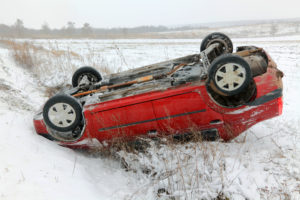 Being in any kind of motor vehicle collision can be a terrifying experience. After an accident as a rideshare passenger, you probably have questions about what your rights and options are moving forward. You may be asking yourself whether you can sue Lyft or Uber, who should be liable for your medical bills and other damages, and if you will need a lawyer during this process. It is a good rule of thumb to consider speaking with a lawyer after a personal injury accident, particularly if there is an individual or other party at-fault and the victim suffered quantifiable damages.
Being in any kind of motor vehicle collision can be a terrifying experience. After an accident as a rideshare passenger, you probably have questions about what your rights and options are moving forward. You may be asking yourself whether you can sue Lyft or Uber, who should be liable for your medical bills and other damages, and if you will need a lawyer during this process. It is a good rule of thumb to consider speaking with a lawyer after a personal injury accident, particularly if there is an individual or other party at-fault and the victim suffered quantifiable damages.
Uber and Lyft offer insurance coverage for collisions caused by their drivers, however, this may only come into effect when the at-fault driver’s insurance policy has been completely exhausted. Furthermore, the factors of the accident will determine the amount of coverage, and what type of coverage, is available to accident victims. Additionally, it’s important to know that rideshare companies do not categorize their drivers as actual employees, but instead as independent contractors. This means that there is more legal ability to avoid liability in the event of an accident.
An injured rideshare driver will have to submit a claim with their owner insurance company. If that driver does not have a policy for rideshare endorsement, then the claim may be denied, since the driver was operating the car commercially when the incident occurred, therefore voiding the benefits their coverage offers.
Both Lyft and Uber provide coverage for those hurt in an accident, including occupants in other vehicles, motorcyclists, passengers, bicyclists, pedestrians, and more. As a rideshare accident lawyer victims depend on from Presser Law, P.A. explains, if you were in a rideshare accident, the rideshare company may provide you compensation such as:
- Up to $30,000 in damage to property per accident (if the driver had the app turned on but did not accept a ride).
- Up to $50,000 in bodily injury per victim, and up to $100,000 in bodily injury per incident (if the driver had the app turned on but not accepted a ride).
- Up to $1 million in property damage, bodily injury, and death (if the driver had the app turned on and accepted ride, whether passenger was present or not).
But as you can see in the list above, rideshare companies may have coverage that can be used, but there are strict details for when this can be offered to victims. Rideshare companies often work hard to separate themselves from collisions so that they can avoid liability at all costs. It isn’t uncommon for victims of accidents to contact Uber or Lyft about receiving compensation, only to get no response. This is why many rideshare accident victims have to hire a legal team, as a lawyer knows how to intervene so that the companies not only respond, but are cooperative.


